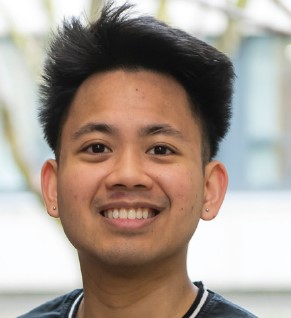Computational Social Science
BSc (Hons) (NFQ Level 8)

Course Video
Curricular information is subject to change.
Open AllThe world around us is undergoing significant changes due to digitization and deployment of Artificial Intelligence. Today we are more interconnected than ever before. As we navigate this new social landscape, we leave behind digital footprints that can be analyzed and interpreted through the lens of Computational Social Science. This field of study leverages the power of big data, computer simulations, and social network analysis to gain insights into social phenomena and individual behaviour. If you want to contribute to shaping the future of our social digital life, this course is for you!
The BSc degree in Computational Social Science is leading the way in this field of study in Europe and beyond. This course offers a unique combination of training in both computational and social science subjects.
As a student, you will have the opportunity to study two social science subjects out of Sociology, Politics, Geography or Economics, as well as a range of modules which teach you how to analyze human social behavior using data science, machine learning, social simulation, and mathematical modeling techniques. These skills are highly valued in today’s competitive job market.
First Year
The first year includes core modules in:
- Computational Social Science
- Programming
- Statistical Modeling and Linear Algebra
In addition, students choose two social sciences subjects from:
- Sociology
- Politics
- Economics
- Geography
- Plus an Elective module.
Second Year
The second year includes further training in Applied and Advanced Computational Social Science methods, as well as courses in;
- Probability Theory
- Programming
- Calculus
and modules in your two social sciences subjects, as well as options from a range of other subjects.
Third Year
The third year provides the opportunity for a trimester abroad at another leading university in Computational Social Science and internship with an industry partner.
Fourth Year
The fourth year includes more modules on data analysis in the social sciences, social dynamics and a research project that will strengthen and consolidate learning in key areas of Computational Social Science.
Assessment
Students usually attend lectures and participate in seminar discussions and lab tutorials. Assessment is based on assignments throughout the semester, small group work, individual reports, traditional exams and other forms of assessment.
During the third year, semester-long study opportunities will be offered in a number of international partner universities.
This course is designed to prepare students for employment opportunities related to the curation and analysis of social big data as well as deploying computational methods such as simulation and machine learning to social scenarios for better policy testing and development. With the increasing demand for social data science expertise, graduates of this course can expect to find employment in a variety of sectors, including Information Technology companies such as Google, Deepmind, Microsoft, LinkedIn, Accenture, Twitter, and Facebook, as well as industries such as Finance, Insurance, Manufacturing, Retail and Energy. Public sector and NGO’s are among the other markets where social data scientists are in high demand. Graduate study opportunities include Social Data Science, Social Sciences, Mathematics and Statistics, Computer Science and Informatics, and other interdisciplinary programmes.
“I chose Computational Social Science as it uses technology to understand and solve complex social issues. This program combines computer science and the social sciences to study human behavior and social systems. It uses large data sets, simulations, and models to understand the complex dynamics and patterns of human interactions in areas such as economics, politics and International relations, geography and sociology. The professors are knowledgeable and engaging, and the hands-on projects and real-world applications have given me a strong foundation in the field. I am grateful for the opportunity to study it at UCD because of its reputation for academic excellence.”
Dave Lugatiman, Student
Associate Professor Taha Yasseri
UCD School of Sociology,
Newman,
Belfield,
Dublin 4
Email: taha.yasseri@ucd.ie


